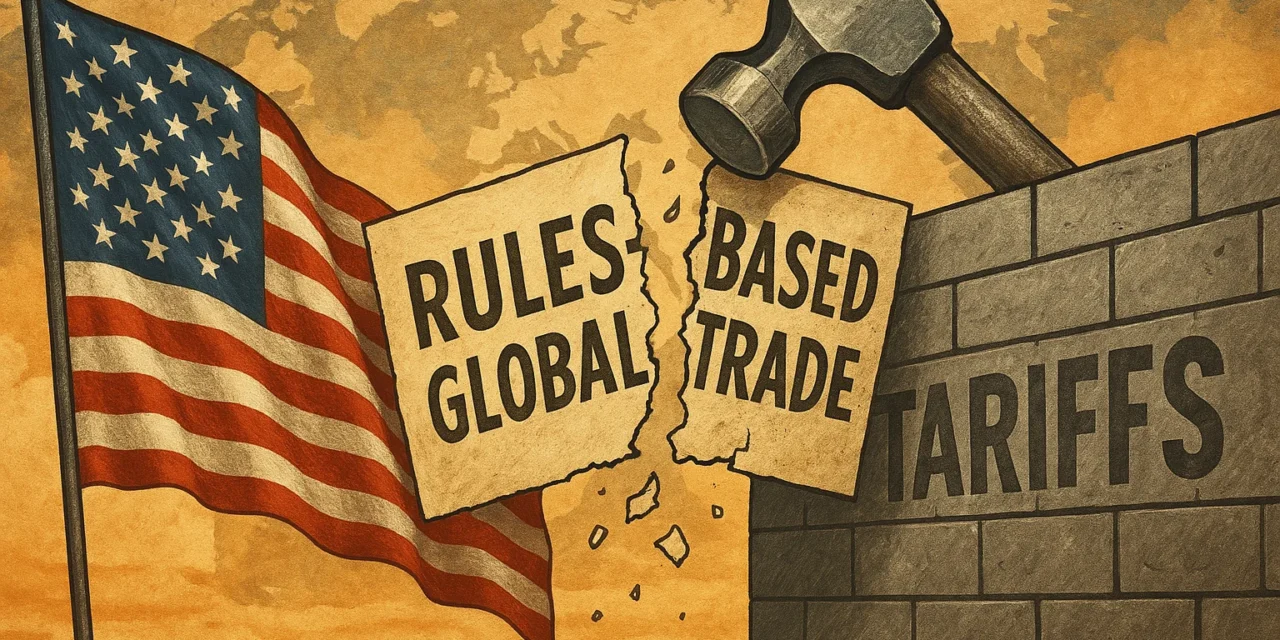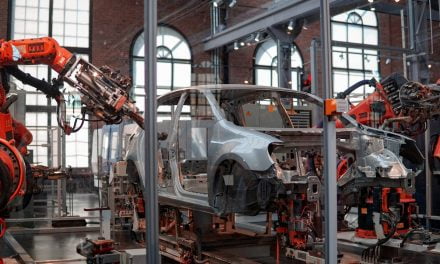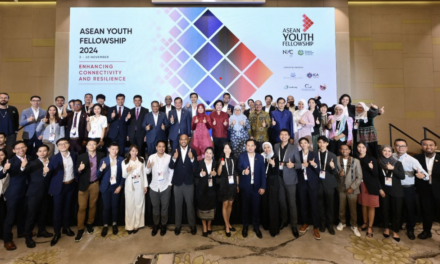Singapore’s Prime Minister & Minister for Finance Lawrence Wong delivered a sobering ministerial statement on Tuesday, warning that the US tariffs signal the end of the rules-based global trading system and the dawn of a more volatile, protectionist world order.
Key points:
- Turning point in global trade: PM Wong declares the era of rules-based globalisation over, triggered by sweeping new US tariffs.
- US tariffs: 10% blanket tariff on nearly all imports, with up to 50% for selected countries. Singapore, despite a free trade agreement and a trade deficit with the US, is also affected.
- WTO undermined: The US move violates the WTO’s ‘Most Favored Nation’ principle, risking the collapse of the multilateral trading system.
- Rising global tensions: Tariffs threaten to escalate into a global trade war; US-China tensions intensify.
- Economic impact on Singapore: Sectors like manufacturing, biomedical sciences, and trade expected to be hit; GDP forecast likely to be revised downwards.
- Government response: Budget support measures in place; a new taskforce will help Singaporeans navigate uncertainties.
- Strategic shifts: Singapore to strengthen ASEAN integration and deepen ties with like-minded global partners.
Unravelling the WTO order
Speaking in Parliament, PM Wong described the US’s so-called “Liberation Day” tariff regime—a 10% blanket tariff on nearly all imports, and up to 50% on some countries—as a “profound turning point” for the global economy.
“This is not reform,” he said. “It is rejecting the very system [the US] created.”
PM Wong highlighted that the tariffs violate the ‘Most Favoured Nation’ principle, a cornerstone of the World Trade Organization that ensures non-discriminatory trade among members. The US’ move towards unilateral, selective tariffs, he warned, could unravel the multilateral trading system and marginalize smaller nations like Singapore.
“The WTO system… allowed trade to flourish and lifted millions out of poverty,” he said. “If this system collapses, small countries with limited bargaining power will be dictated to by major powers.”
Singapore targeted despite FTA
Singapore, despite having a free trade agreement with the US and running a trade deficit with it, is still subject to the 10% tariff. “These are not actions one does to a friend,” PM Wong said, expressing disappointment at what he framed as a betrayal of longstanding ties.
Asia, and particularly China, is hardest hit by the tariffs—with Chinese exports now facing an average US tariff exceeding 60%. Southeast Asian countries face tariffs ranging from 10% to 49%.
Growing risk of global trade war
While Singapore has opted not to retaliate, PM Wong acknowledged that other nations might. China has already imposed retaliatory tariffs, and the EU is reportedly considering its response.
Wong compared the current situation to the US’ Smoot-Hawley Tariff Act of 1930, which triggered a wave of retaliatory tariffs and deepened the Great Depression by stifling global trade. But he warned today’s risks may be even greater, given the scale of global trade and interconnectedness of modern supply chains.
“Protectionism is already bad—unstable protectionism is even worse,” he said, citing the negative effect on business confidence and investment.
Economic impact on Singapore
The Prime Minister said Singapore’s growth would be “significantly impacted.” Outward-oriented sectors like manufacturing, electronics, biomedical sciences, and trade and transport are expected to bear the brunt. The Ministry of Trade and Industry is likely to revise the 2025 gross domestic product growth forecast—originally set at 1% to 3%—downwards.
While Singapore may avoid a recession, PM Wong acknowledged a risk of job losses, fewer opportunities, and slower wage growth.
Singapore’s advanced GDP estimates are due for release next Monday.
Government’s immediate and longer-term response
To mitigate short-term pain, the Singaporean government will lean on Budget 2025 measures, including vouchers, rebates, jobseeker support schemes, and corporate tax rebates.
A new task force chaired by Deputy Prime Minister Gan Kim Yong will be convened to assist workers and businesses in adapting to the new environment. It will include stakeholders like the Singapore Business Federation and the National Trades Union Congress.
In the long term, PM Wong said Singapore must double down on its position as a trusted global node and forge deeper partnerships with like-minded economies—especially within ASEAN and in sectors like digital and green trade.
A call for resilience
Ending on a note of resolve, PM Wong urged Singaporeans to “stay united” amid growing geopolitical and economic uncertainty.
“The predictable and rules-based order we once knew is fading,” he said. “But in a dark and troubled world, Singapore will hold our ground as a beacon of stability, purpose and hope.”







